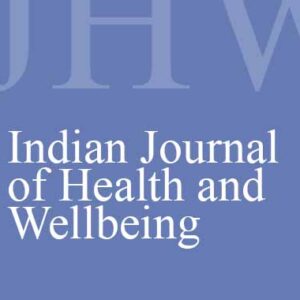
Problems and Potentials of Anganwadi Workers in the ICDS Projects: An Empirical Study
Original price was: ₹ 201.00.₹ 200.00Current price is: ₹ 200.00.
Page: 474-477
Anima Sen1 and Salma Seth2 (Department of Psychology, University of Delhi, Delhi1 and Department of Applied Psychology, Vivekananda College, University of Delhi, Delhi2)
Impact evaluations of Integrated Child Development Services (ICDS) scheme have been undertaken earlier at the State and national levels by several academic and medical institutions. The present research, too, is an attempt in this direction. The Anganwadi (AW) is the focal point for providing the services, to the children below the age of six years and their mothers, right at their door-step in urban slums, backward rural and tribal districts, and drought and flood-prone belts of the country. Thus, the Anganwadi Worker (AWW) plays a vital role in the effective implementation of the Project. Keeping this in view, it was intended in 1991 to study the efficacy of AWWs vis-à-vis their working conditions in the set-up of ICDS projects in the Union Territory of Delhi. The sample comprised of 400 AWWs selected with the help of stratified random sampling technique from the 22, then functioning, ICDS Projects in Delhi. Seven questionnaires and psychological tests were administered, namely, Information Schedule for AWWs, Information Schedule for Supervisors, Observation Schedule, AWW Efficiency Scale, Sinha’s Anxiety Scale, Dutt Personality Inventory, and Thakur and Malviya’s Socio-Economic Status Scale. The latter psychological tests were employed in order to obtain an in-depth understanding of the individual AWWs in terms of their manifest anxiety levels, general anxiety and socio-economic status. The salient findings revealed that though generalizations cannot be made, it can be reasonably concluded that a majority of the AWWs were not able to fulfill the objectives of the project due to lack of extrinsic and intrinsic motivating factors involved. The results have been discussed in the light of the data obtained and with the help the observational reports. Several recommendations were, also, proposed so that the AW would extend beyond the delivery of nutrition and immunisation services. That is, taking care of the children’s cognitive and socio-emotional development where the parents are unable to do so due to acute problems of poverty, illiteracy, and lack of motivation.
Description
Page: 474-477
Anima Sen1 and Salma Seth2 (Department of Psychology, University of Delhi, Delhi1 and Department of Applied Psychology, Vivekananda College, University of Delhi, Delhi2)
